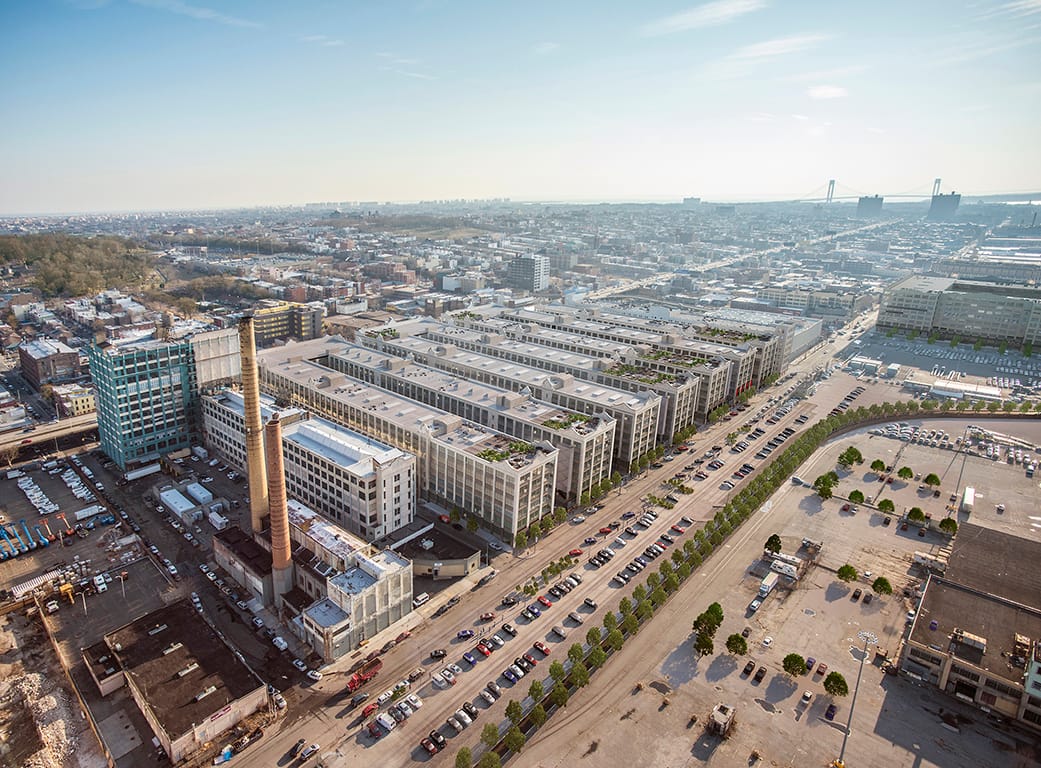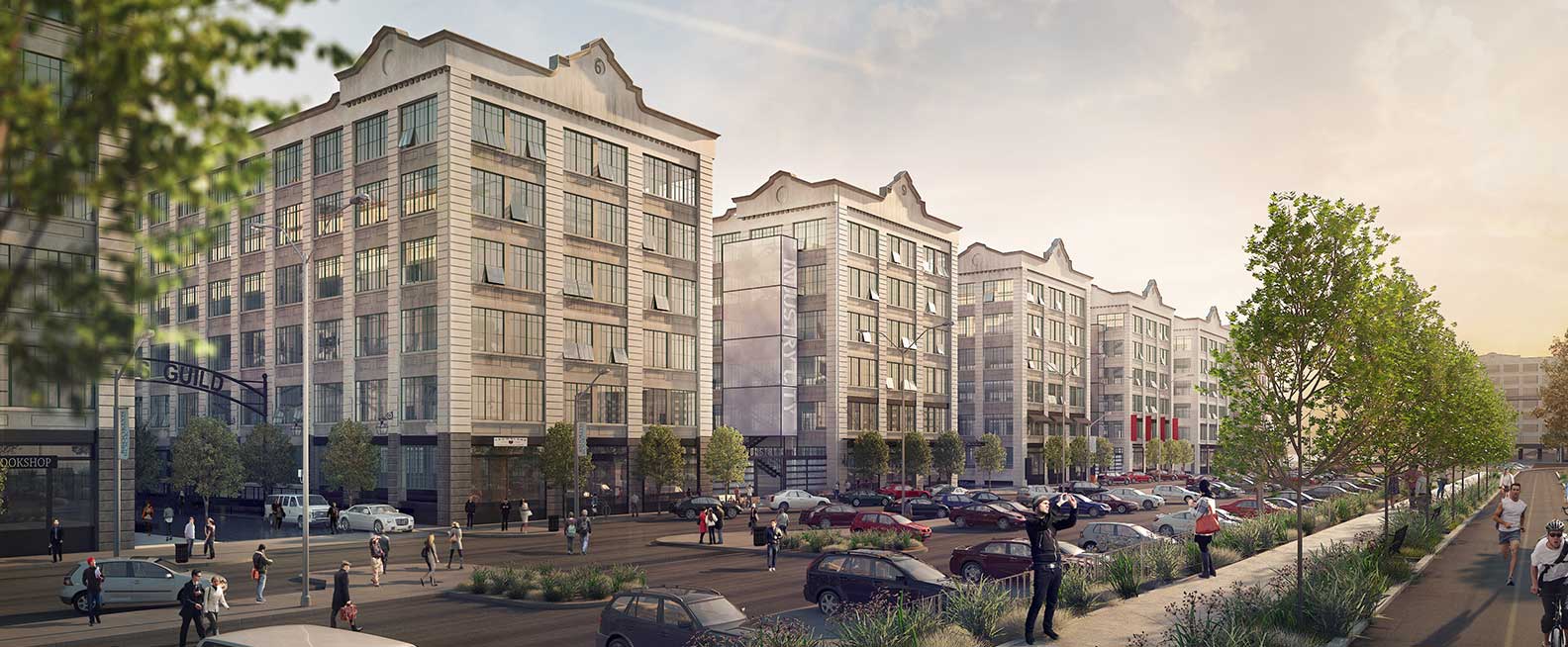Is The Industry City Rezoning DOA?


In September, six months after the coronavirus pandemic halted much of day-to-day life in New York City, the city will resume one of its crucial tools for development: the Uniform Land Use Review Procedure (ULURP), the multi-step process that determines rezonings and other land use changes in the five boroughs. But the fate of one of the biggest projects on the docket this year — the rezoning of Industry City — is now up in the air.
Last week, City Council member Carlos Menchaca, who represents Sunset Park, officially withdrew his support for the planned rezoning, and went so far as to call on the project’s developers to withdraw their proposal altogether.
“It is clear to me that the displacement and gentrification our city is combatting today is the result of giving private developers free reign,” Menchaca said in a video posted to Instagram. “We must learn from our mistakes and deliver what New Yorkers really need: stable housing, access to affordable and nutritious food, guaranteed health care, and good-paying, family-sustaining jobs.”
The rezoning proposal, spearheaded by a consortium of developers (Jamestown, Belvedere Capital, and Angelo, Gordon & Co.), would add more than 1 million square feet of commercial, retail, and community space to the 35-acre waterfront complex. Some of that space would be devoted to classrooms, and some to new manufacturing space. Approximately 287,000 square feet would be set aside for hotels, which was one of several points of contention for Menchaca and opponents of the proposal, including advocacy groups like Uprose and Protect Sunset Park. Those groups also contend that the rezoning would accelerate gentrification and displacement in the neighborhood, where many residents are already rent-burdened, according to NYU’s Furman Center.
Back in September of 2019, before the developers formally began the land use review process, Menchaca presented Industry City with a list of conditions that he and community members wanted met (such as striking the hotel proposal, cutting the amount of retail space, and building a new public technical high school), in order to support the project. The developers agreed to those conditions, but in the wake of the coronavirus crisis, Menchaca says, the city should focus its efforts on addressing the “glaring disparities” faced by the city’s most vulnerable residents.
“Industry City’s rezoning will make it harder for working people to live in Sunset Park, and our city land use process favors corporate developers as they profit off the displacement of working-class New Yorkers,” Menchaca said in his Instagram video.
Typically, the lack of support from the councilmember who represents the district is the death knell for any kind of land use application — but this is 2020, and nothing is typical in New York City anymore. On Monday, two councilmembers came out in support of the rezoning: In an op-ed published in the New York Daily News, Donovan Richards (who represents parts of Queens) and Ritchie Torres (who represents sections of the Bronx) wrote that the Industry City rezoning is a “historic” opportunity to create jobs, particularly for “the most vulnerable New Yorkers” who were hit hardest by the pandemic.

“We understand the deep anxieties about development projects, which have come to be associated with displacement and gentrification,” the op-ed reads. “But Industry City’s application is not about skyscrapers that displace people. It is about jobs that employ New Yorkers in a time of depression-level unemployment.”
Richards and Torres called on the rest of the City Council to let the ULURP application move forward, noting that the practice of deferring to the local councilmember “becomes dangerous when it morphs into veto power over the growth of the city’s economy.”
“No one from the mayor’s office was speaking out. No one from the Council was speaking out,” Torres told The Real Deal. “Someone had to make the case for creating jobs and revenue in the midst of an economic depression.”
What does this intra-Council division mean for the future of Industry City? At this point, it’s too early to say if the proposal is dead in the water; despite reports to the contrary, the developers have not withdrawn their application, and the City Planning Commission recently met to go over an amended proposal that reflects concerns brought up by both Menchaca and Brooklyn Borough President Eric Adams (including a concession to scrap the contested hotels). At that review session, some of the CPC’s commissioners questioned whether Industry City has done enough to address community concerns.
It’s “a real struggle for the soul of Industry City,” said Commissioner David Burney, who was previously a director of the city’s Department of Design and Construction. “That’s an important issue the applicant really needs to address.”
The ULURP process restarts in September, and assuming the developers don’t scrap their application altogether, there will be more sure-to-be contentious public hearings on the rezoning.
“Often, in times of great crisis, great leaders emerge,” Industry City spokesperson Lee Silberstein said in a statement. “We are hoping that will be the case in our effort to work with city leaders to fully implement a plan to create 20,000 jobs and generate hundreds of millions of dollars in taxes.”




